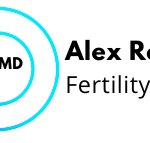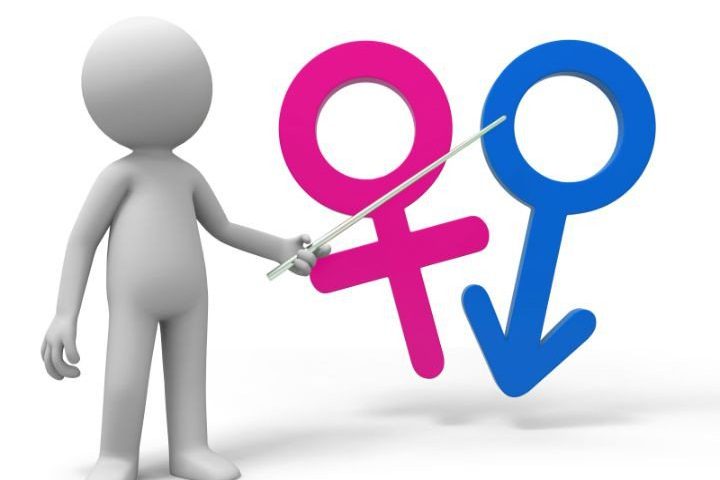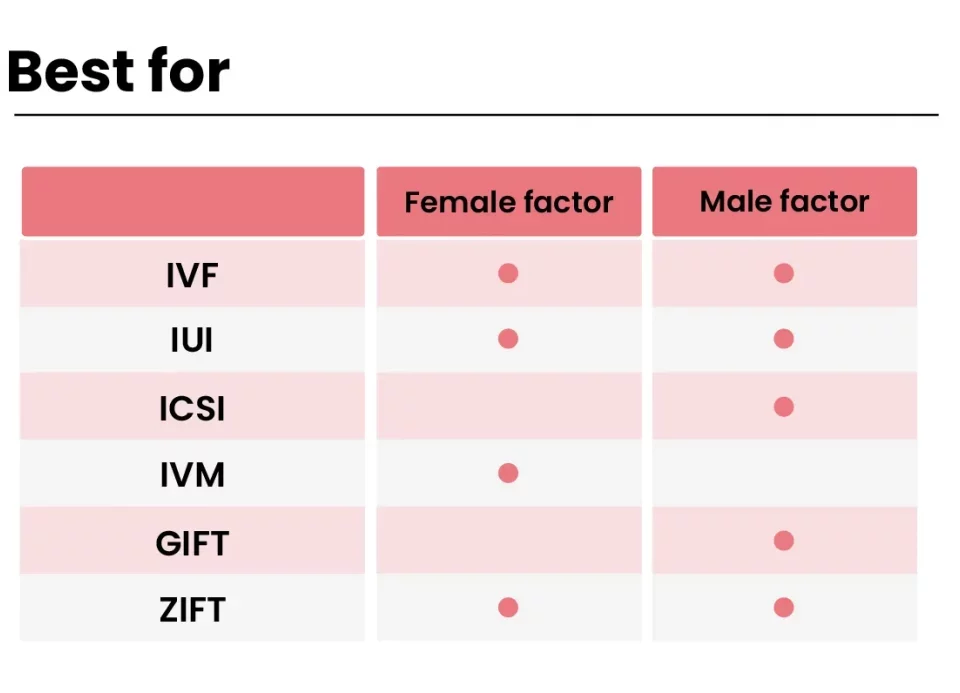
What Does Menopur Do in IVF? Your Guide to This Fertility Game-Changer
April 12, 2025
Is IVF a Sin? Exploring Ethics, Faith, and Science in Fertility
April 12, 2025Is the Catholic Church Against IVF?

Is the Catholic Church Against IVF?
When you’re dreaming of starting a family but facing roadblocks like infertility, it’s natural to explore every option out there. In vitro fertilization (IVF) has become a go-to solution for many couples, offering hope where nature alone isn’t enough. But if you’re Catholic—or just curious about how faith intersects with modern science—you might wonder: does the Catholic Church support IVF, or is it totally off-limits? The short answer is yes, the Church opposes IVF, but the reasoning behind it is deeper and more nuanced than you might expect.
This isn’t just about rules or saying “no” for the sake of it. It’s about a vision of life, love, and family that’s been shaped over centuries. In this article, we’ll dive into why the Catholic Church takes this stance, what it means for couples struggling to conceive, and how it fits into today’s world—complete with fresh perspectives, real-life stories, and practical ideas you won’t find everywhere else. Let’s explore this together.
Why Does the Catholic Church Oppose IVF?
The Catholic Church’s position on IVF isn’t a secret—it’s been clear since the technology emerged in the late 1970s. When Louise Brown, the world’s first “test-tube baby,” was born in 1978, it was a groundbreaking moment. But while the world cheered, the Church paused to reflect. Documents like Donum Vitae (1987) and Dignitas Personae (2008) spell it out: IVF is considered “morally unacceptable.” Here’s why.
IVF involves taking a woman’s eggs, combining them with sperm in a lab, and then placing the resulting embryo into the womb. To the Church, this process disrupts something sacred—the natural connection between love and life. In Catholic teaching, a child should come from the “marital act”—the physical and spiritual union of a husband and wife. IVF, by happening in a petri dish, separates that union from the creation of life, turning it into a technical procedure instead of an act of love.
But it’s not just about the “how.” The Church also worries about what happens along the way. Often, multiple embryos are created during IVF, and not all of them make it. Some are discarded, others are frozen indefinitely, and a few might be used for research. To Catholics, life begins at conception, so each embryo is a human being with a soul. Throwing them away or leaving them in limbo? That’s a big ethical no-no.
Think of it like this: imagine you’re baking cookies with your best friend. The fun isn’t just in eating the cookies—it’s in mixing the dough together, laughing over the mess, and sharing the moment. IVF, in the Church’s eyes, skips the shared experience and hands the recipe to a stranger in a lab coat. Plus, if some cookies get tossed because they’re not “perfect,” it feels wasteful and wrong. That’s the heart of the objection.
The Bigger Picture: Dignity and Life
The Catholic Church isn’t against babies—far from it! It celebrates life as a gift from God. So why draw the line at IVF? It’s about dignity—for the child, the parents, and the process itself. The Church believes every person has a right to be conceived through love, not a syringe. When conception happens outside the body, it risks treating kids like products instead of gifts.
Take the numbers: studies estimate that over 90% of embryos created through IVF don’t survive to birth. Some fail to develop, others are discarded for being “less viable,” and many are frozen—sometimes for years. In the U.S. alone, there are over a million frozen embryos in storage today, according to the American Society for Reproductive Medicine. To the Church, that’s a million lives stuck in a kind of limbo, which raises tough questions about their fate.
And it’s not just the embryos. The process can take a toll on couples too. IVF often involves hormone treatments, emotional stress, and a hefty price tag—sometimes $15,000 or more per cycle. Success rates hover around 30-40% for women under 35, dropping lower with age, per the CDC. The Church sees this as a risky, artificial shortcut that sidesteps the body’s natural design—and God’s plan.
Quick Quiz: What Matters to You?
Let’s make this personal for a sec. When you think about having kids, what’s most important? Pick one and see where you stand:
- A) Bringing a child into the world, no matter how it happens.
- B) Keeping things natural, even if it’s harder.
- C) Making sure every step respects life from the start.
There’s no right or wrong here—it’s just a way to reflect on what drives your choices. The Church’s answer is a mix of B and C, but your journey might look different.
What Happens to the “Extra” Embryos?
One topic that doesn’t get enough airtime is the fate of those leftover embryos. IVF clinics often fertilize multiple eggs to boost the odds of success. If a couple gets pregnant, they might not need the rest. So what happens next? Here are the options—and why they’re tricky for Catholics:
- Freezing: Embryos are cryopreserved for later use. Sounds practical, right? But the Church sees it as putting human lives on hold, sometimes indefinitely. Plus, not all survive the thawing process—about 20% don’t, according to a 2023 study in Fertility and Sterility.
- Donation: Some couples donate extras to other families. This “embryo adoption” idea has fans, but the Church hesitates. It still stems from IVF’s artificial start, and it can feel like trading lives instead of creating them naturally.
- Discarding: Clinics dispose of unwanted embryos. To Catholics, this is straight-up ending a life, no different from abortion.
- Research: Embryos might go to science, like stem cell studies. While it could help others, the Church says it’s unethical to use human beings as lab tools.
This embryo dilemma is a huge reason the Church digs in its heels. It’s not just about saying no to IVF—it’s about what happens after the “yes.” Most articles skim over this, but it’s a real sticking point that deserves more thought.
Real Stories: Catholics Facing Infertility
So what does this mean for real people? Meet Sarah and Mike, a Catholic couple from Ohio. After three years of trying to conceive, they saw a fertility specialist who suggested IVF. Sarah was tempted—her sister had twins that way—but Mike wasn’t sure. They went to their priest, who explained the Church’s view: IVF might give them a baby, but it clashes with their faith’s core values.
“It was brutal,” Sarah says. “You want a family so bad, and here’s this option everyone’s doing, but it felt like we’d be betraying something bigger.” They decided to explore other paths, like NaProTECHNOLOGY—a Church-approved method that treats infertility naturally. It took time, but they had a daughter last year. “It wasn’t easy, but it felt right,” Mike adds.
Then there’s Lisa, a single mom from California who grew up Catholic but chose IVF anyway. “I knew the Church’s stance,” she says, “but I was 38, unmarried, and my clock was ticking. I have no regrets—my son’s my world.” Lisa still goes to Mass, though she feels a quiet tension with her choice.
These stories show the push and pull: faith versus longing, rules versus reality. The Church’s stance isn’t just theory—it shapes lives in messy, human ways.
Are There Alternatives to IVF?
If IVF’s off the table, what can Catholic couples do? The good news is, there are options that align with Church teaching. They’re not as flashy as IVF, but they focus on healing the body rather than bypassing it. Here’s a rundown:
- NaProTECHNOLOGY: This approach digs into the root causes of infertility—like hormone imbalances or endometriosis—and treats them with meds or surgery. A 2021 study from the Pope Paul VI Institute found it helped 60-70% of couples conceive naturally within two years. It’s like fixing a car instead of buying a new one.
- Natural Family Planning (NFP): NFP tracks a woman’s cycle to pinpoint fertile days. It’s not a cure, but it maximizes chances of conception. Plus, it’s free and empowering once you learn it.
- Adoption: The Church loves this option. It’s not about biology—it’s about building a family through love. In 2024, over 135,000 kids in the U.S. were waiting for homes, per the Adoption Network.
Steps to Explore Alternatives
Feeling stuck? Try this:
- Talk to a Doctor: Find one trained in NaPro or restorative reproductive medicine. They’re rare but growing—check the FertilityCare website for a list.
- Learn NFP: Take a class (online or in-person) to master your cycle. It’s a team effort for you and your partner.
- Pray on It: Faith’s a big deal here. Chat with a priest or a Catholic counselor for guidance.
- Research Adoption: Look into local agencies or foster-to-adopt programs. It’s a marathon, not a sprint, but so worth it.
These paths take patience, but they’re designed to honor both your body and your beliefs.
How Do Catholics Actually Feel About IVF?
Here’s something you won’t find in every article: not all Catholics follow the Church’s line. A 2023 Pew Research survey found that 55% of white, non-Hispanic Catholics in the U.S. know someone who’s used fertility treatments, and only 13% think IVF is morally wrong. That’s a gap between official teaching and everyday life.
Why the disconnect? For some, it’s practical—IVF works when nothing else does. For others, it’s personal—they see it as a gift, not a sin. “God gave us science for a reason,” one Catholic mom told me after her IVF twins were born. She’s not alone in bending the rules while staying faithful in her heart.
This tension’s worth digging into. The Church isn’t a monolith—its people wrestle with these questions too. It’s a reminder that faith isn’t always black-and-white, especially when emotions run high.
IVF in Today’s World: Trends and Tensions
Fast-forward to 2025, and IVF’s hotter than ever. Google Trends shows searches for “IVF success rates” and “IVF cost” spiking this year, especially after Alabama’s 2024 ruling that frozen embryos are legally children. That decision rattled clinics and couples alike, spotlighting the ethical mess IVF can stir up.
On X, the chatter’s loud. Some Catholics defend the Church’s stance, pointing to embryo loss as a dealbreaker. Others argue it’s outdated—why reject a tool that builds families? One user posted, “If God’s about life, why not use IVF to make more?” It’s a fair question, and it’s fueling debates online and off.
Meanwhile, science keeps pushing. A 2024 study in Human Reproduction found that AI can now predict embryo viability with 85% accuracy, cutting down on “extras.” That’s cool, but it doesn’t solve the Church’s core issue: conception’s still outside the body. Tech’s advancing, but the moral questions linger.
Poll Time: Where Do You Stand?
Let’s hear from you:
- ✔️ I get why the Church says no—life’s sacred from the start.
- ❌ IVF’s fine by me—it’s about love, not labs.
- 🤷 I’m torn. Both sides make sense.
Drop your vote in your head (or chat about it with a friend). It’s a tricky one, right?
Three Fresh Angles You Haven’t Heard
Most articles hit the same notes—marital act, embryo dignity, blah blah. But here are three angles that don’t get enough play:
1. The Emotional Toll of Saying No
Saying no to IVF isn’t just a theological flex—it’s a gut punch for couples. Infertility’s already a rollercoaster, and the Church’s stance can feel like a locked door. A 2022 study in Psychological Reports found that religious couples who avoid IVF report higher stress levels than those who go for it, partly from guilt or isolation. The Church offers support—like Springs in the Desert, a Catholic infertility ministry—but it’s not always enough. More needs to be said about balancing faith with mental health here.
2. The Environmental Cost of IVF
Here’s a wild one: IVF’s got an eco-footprint. Hormone drugs, lab equipment, and embryo storage use energy and resources. A 2023 report from Environmental Health Perspectives estimated that one IVF cycle generates about 500 pounds of CO2—equal to driving 1,200 miles. The Church doesn’t lean on this, but it ties into its stewardship vibe. Could “green” concerns sway the debate? It’s a fresh lens worth exploring.
3. The Social Justice Angle
IVF’s pricey, so it’s mostly for the well-off. In the U.S., only 15 states mandate insurance coverage for it, per the National Conference of State Legislatures. That leaves low-income Catholics—who might already feel torn by Church rules—out in the cold. The Church pushes adoption, but what about advocating for fairer access to natural treatments? This equity gap’s a blind spot in the convo.
Practical Tips for Navigating This
So, you’re Catholic (or curious) and wrestling with infertility. What now? Here’s a game plan that respects faith while keeping hope alive:
- Talk It Out: Sit down with your spouse and a priest. Lay out your feelings—fear, hope, all of it. Clarity comes from honesty.
- Research Deep: Don’t just Google “IVF Catholic.” Dig into NaPro success stories or adoption stats. Knowledge is power.
- Build a Crew: Join a Catholic infertility group—online or IRL. Sharing the load lightens it.
- Pray Smart: Ask for peace, not just a baby. It shifts the focus from “fixing” to “trusting.”
Checklist: Your Next Move
- ✔️ Book a doc appointment for a natural fertility check.
- ❌ Skip the guilt trip if IVF tempts you—it’s normal to waver.
- ✔️ Chat with an adoption agency for a no-pressure info session.
Wrapping It Up: Faith, Science, and You
The Catholic Church’s beef with IVF isn’t about hating progress—it’s about loving life in a specific way. It sees conception as a dance between husband, wife, and God, not a lab experiment. That view clashes with IVF’s nuts and bolts, from petri dishes to frozen embryos. But it’s not all doom and gloom—there are paths like NaPro and adoption that keep hope alive without crossing that line.
Still, it’s not a one-size-fits-all deal. Some Catholics embrace IVF and sleep fine at night; others stick to the playbook and find joy elsewhere. The tension’s real, especially in 2025 with science racing ahead and families fighting to grow. What’s clear is this: the Church isn’t budging, but its people are navigating it their way.
So where do you land? Maybe you’re nodding along with the Church, or maybe you’re rooting for science to win. Either way, it’s your story to write. Faith and family aren’t easy topics, but they’re worth the wrestle. What’s your next step—prayer, a doctor’s visit, or just a good talk with someone you trust? Whatever it is, you’ve got this.

